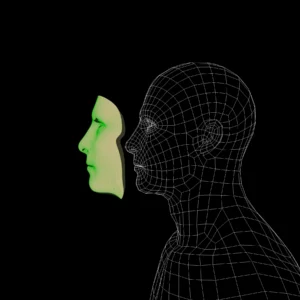Key Highlights of the bill
- New Offense for Deepfake Material Transmission: Australia’s Criminal Code Amendment (Deepfake Sexual Material) Bill 2024 was passed by both houses on 21st August, 2024. The bill introduces a new criminal offense relating to the use of any “carriage service” to transmit sexually explicit material of another person without their consent and it includes deepfake content created or altered using digital technology specifically, including AI.
- Severe Punishment to the Criminals: The base offense is awarded six years of imprisonment. It increases to seven years if the criminal was involved in making or editing the deepfake content.
- Tech-Neutral Drafting: The Bill has been drafted in technology-neutral terms, ensuring its application and relevance in the face of endless development in the world of digital and AI technologies.
The Criminal Code Amendment (Deepfake Sexual Material) bill, 2024 is passed in Australia by both houses as an effort to strongly combat the growing threat of sexually explicit content created using artificial intelligence technology. This legislation is meant to amend the current Criminal Code and seeks amendments that especially relate to and deal with deepfake technology’s use in a malicious way for creating and sharing nonconsensual sexual material. The bill will come into effect after receiving the royal assent.
Why the Bill is introduced?
Deepfake technology has leaped creativity to an extent where users can create very realistic audio, videos, and images that never existed. This technology holds great potential for creative and entertainment purposes. But, over the time, it has been increasingly used in malicious activities and of course, one of the most concerning use cases is non-consensual Deepfake pornography, which causes huge harm to victims in the form of emotional trauma, reputational damage, and sometimes even blackmail. The introduction of this bill by Australia comes in response to the growing number of cases involving deepfakes which are used to harass, humiliate, and exploit people.

FEATURES OF THE BILL
- Provision for Transmission of Deepfake Material using social media platforms- The bill entails a new offense under Section 474.17A of the Criminal Code Act, which involves the use of a “carriage service” to transmit sexually explicit material of another person without their consent or in a manner that is reckless as to whether or not there be consent from that person. The “carriage service” under the bill is broadly defined to mean any platform that facilitates communication and would thus capture social media networks, email, SMS, and others. An important aspect of this new offense is its inclusion of deepfake material where, it is emphasized that in its absolute form or if it has been altered, wholly created by the use of technology, then it is not outside the scope of the law. It just secures the legislation to include a wide range of manner in which deepfake technology can be used.
- Provision for non-consensual sharing of deepfake material- The first significant aspect of the offense of transmission of deepfake material is the issue of recklessness and according to the bill, recklessness is defined as that, the offender makes no regard as to whether or not the person shown in material consents its transmission. This definition broadens the scope of the offense to capture not only intentional acts but also situations where individuals act without considering the potential harm done to the person depicted. This is very important in the digital arena, whereby materials are massively diffused at very high speeds, mostly without properly bringing out issues of consent or the effect on the person concerned and by including the stage of recklessness, it is hoped that the law can act to stem the unrestrained sharing of deepfake content.
- Tech-Neutral Drafting and Future-Proofing of the Law- The outstanding features of the legislation concern the use of tech-neutral language where it neither entrenches nor talks about any particular technology or platform, so it stays relevant even at a time when technology assumes new dimensions. This approach for sure remains very important, considering that innovation in the digital sphere happens at an incredible rate, especially in AI and deepfake technologies, and as because it is tech-neutral, this law will evolve and include the newer forms of digital manipulation once they come into being. Deepfakes are big now, but other technologies might exist in the future that pose similar risks, and this legislation would capture that.
- Penalties and Enforcement in the Bill- It makes the distribution of non-consensual deepfake material a basic offense and establishes a maximum penalty of six years imprisonment. This expresses the seriousness of the offense, but more importantly, it would hopefully serve as a strong deterrent for prospective offenders. Aggravation in such offenses, where the offender is directly involved in creating or altering the deep fake material, enhances the penalty to seven years of imprisonment and this makes a distinction, recognizing additional culpability of the person who actively engages in the production of harmful deep fake content.
- Dealing with the Concerns of Double Jeopardy- The bill also has provisions against double jeopardy whereby one could not be convicted for both the basic offense and the aggravated one for the same act and this helps in ensuring the process of justice remains to be fair though at the same time, offenders are brought to book for their actions accordingly.

Conclusion
Passing the Criminal Code Amendment Deepfake Sexual Material) Bill 2024 was a landmark moment for Australia in its response to legislative challenges brought about by AI and digital technologies and in respect of this challenge, criminalizing a non-consensual transmission of deepfake material and introducing heavy penalties for such actions elevated Australia to the front line in defending its citizens from digital abuse. While it is a step ahead, the Criminal Code Amendment (Deepfake Sexual Material) Bill 2024 comes as a part of an overall project aimed at renewing Australia’s legal framework in view of the challenges that AI and digital technologies pose. The continuous efforts to update privacy, copyright, and competition law will be required to construct a comprehensive, resilient legal landscape with which to deal effectively with the challenges and opportunities of AI.
References
- To access the bill, click here
- https://www.aph.gov.au/Parliamentary_Business/Bills_LEGislation/Bills_Search_Results/Result?bId=r7205
- https://www.dataguidance.com/news/australia-bill-prohibiting-sharing-sexually-explicit
- https://www.aph.gov.au/Parliamentary_Business/Bills_Legislation/bd/bd2324a/24bd081#:~:text=In%202018%2C%20the%20Enhancing%20Online,474.17%20involved%20’private%20sexual%20material‘

